#håkan hagegård
Text
"Tystnad! Tagning! Trollflöjten!" (1975) - Katinka Faragó & Måns Reuterswärd
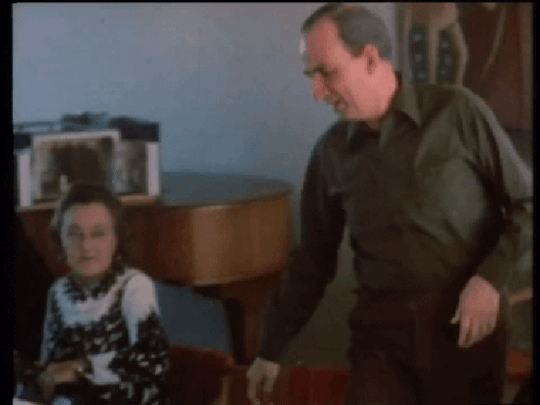
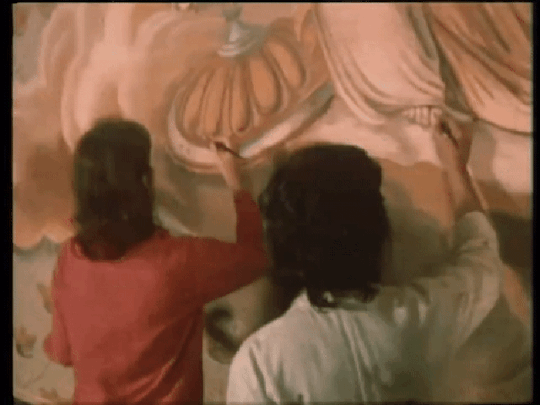
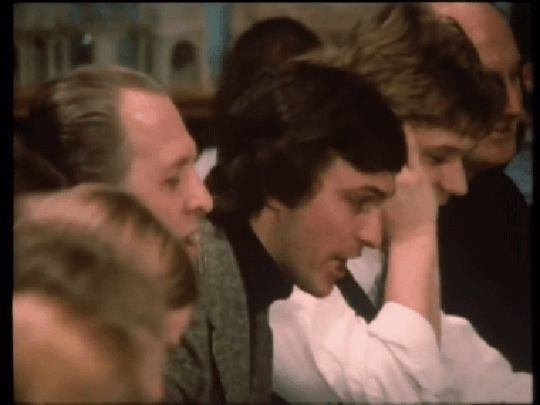
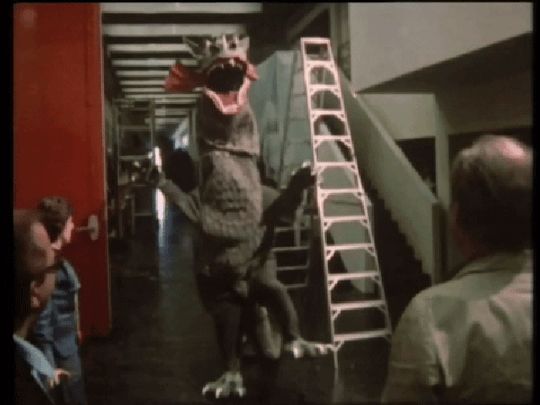
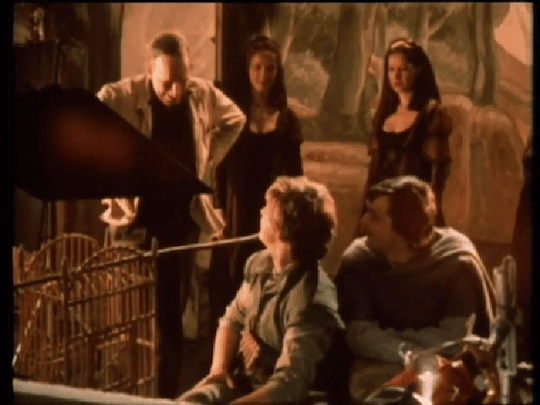
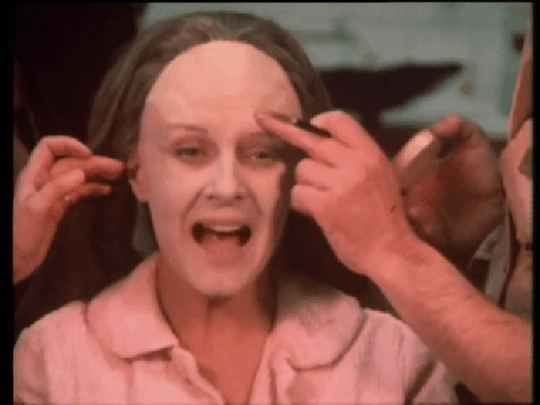
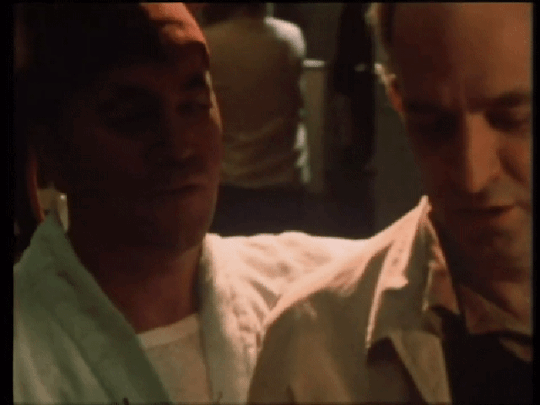
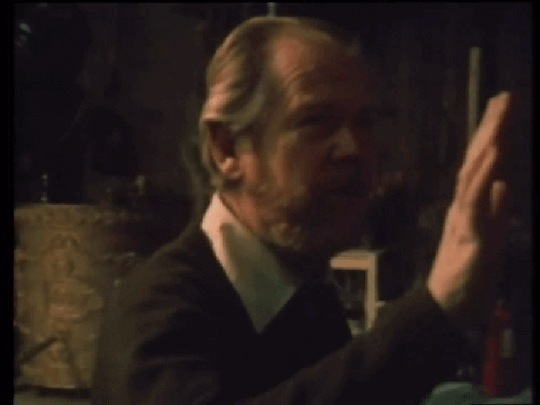
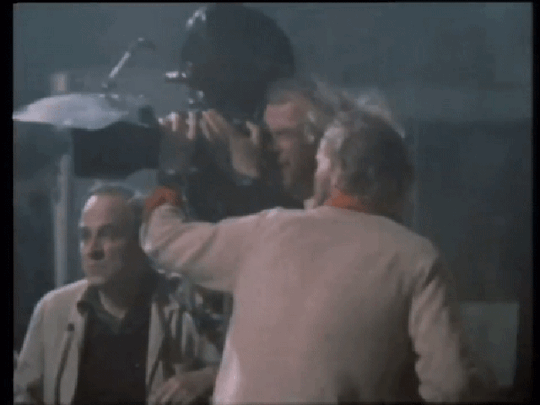
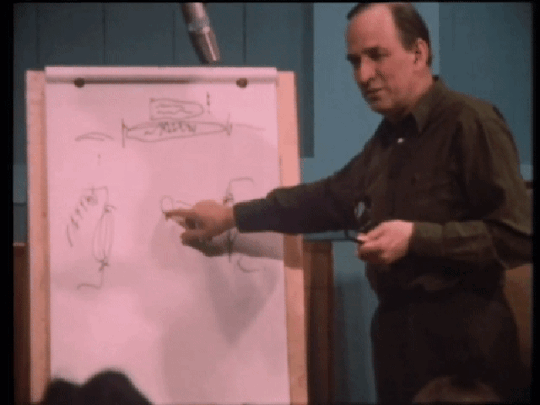
Films I've watched in 2024 (50/?)
I have so much love for Bergman for making proper behind-the-scenes documentaries for several of his films. This one is about his 1975 version of Mozart's "Trollflöjten" ("Die Zauberflöte"/"The Magic Flute").
#films watched in 2024#Tystnad! Tagning! Trollflöjten!#Ingmar Bergman#Josef Köstlinger#Håkan Hagegård#Birgit Nordin#Ragnar Ulfung#Sven Nykvist#The Magic Flute#Die Zauberflöte#documentary#motionpicturelover's gifs
0 notes
Text
Opera on YouTube
I've shared links to complete opera performances before, but I love to share them, so I thought I'd make a few masterposts.
These list are by no means the only complete filmed performances of these operas on YouTube, but I decided that ten links for each opera was enough for now.
By the way, some of the subtitles are just a part of the video, while others require you to click CC to see them.
Die Zauberflöte (The Magic Flute)
Hamburg Philharmonic State Opera, 1971 (Nicolai Gedda, Edith Mathis, William Workman, Christina Deutekom, Hans Sotin; conducted by Horst Stein; English subtitles)
Ingmar Bergman film, 1975 (Josef Köstlinger, Irma Urrila, Håkan Hagegård, Birgit Nordin, Ulrik Cold; conducted by Eric Ericson; sung in Swedish; English subtitles)
Salzburg Festival, 1982 (Peter Schreier, Ileana Cotrubas, Christian Bösch, Edita Gruberova, Martti Talvela; conducted by James Levine; Japanese subtitles)
Bavarian State Opera, 1983 (Francisco Araiza, Lucia Popp, Wolfgang Brendel, Edita Gruberova, Kurt Moll; conducted by Wolfgang Sawallisch; English subtitles)
Metropolitan Opera, 1991 (Francisco Araiza, Kathleen Battle, Manfred Hemm, Luciana Serra, Kurt Moll; conducted by James Levine; English subtitles)
Paris Opera, 2001 (Piotr Beczala, Dorothea Röschmann, Detlef Roth, Desirée Rancatore, Matti Salminen; conducted by Ivan Fischer; no subtitles)
Royal Opera House, Covent Garden, 2003 (Will Hartman, Dorothea Röschmann, Simon Keenlyside, Diana Damrau, Franz Josef Selig; conducted by Colin Davis; no subtitles) – Act I, Act II
La Monnaie, Brussels, 2005 (Topi Lehtipuu, Sophie Karthäuser, Stephan Loger, Ana Camelia Stefanescu, Harry Peeters; conducted by René Jacobs; French subtitles)
Kenneth Branagh film, 2006 (Joseph Kaiser, Amy Carson, Benjamin Jay Davis, Lyubov Petrova, René Pape; conducted by James Conlon; sung in English)
San Francisco Opera, 2010 (Piotr Beczala, Dina Kuznetsoca, Christopher Maltman, Erika Miklósa, Georg Zeppenfeld; conducted by Donald Runnicles; English subtitles)
La Traviata
Mario Lanfrachi studio film, 1968 (Anna Moffo, Franco Bonisolli, Gino Bechi; conducted by Giuseppe Patané; English subtitles)
Glyndebourne Festival Opera, 1987 (Marie McLaughlin, Walter MacNeil, Brent Ellis; conducted by Bernard Haitink; Italian and Portuguese subtitles)
Teatro alla Scala, 1992 (Tiziana Fabbricini, Roberto Alagna, Paolo Coni; conducted by Riccardo Muti; English subtitles)
Royal Opera House, Covent Garden, 1994 (Angela Gheorghiu, Frank Lopardo, Leo Nucci; conducted by Georg Solti; Spanish subtitles)
Teatro Giuseppe Verdi, 2003 (Stefania Bonfadelli, Scott Piper, Renato Bruson; conducted by Plácido Domingo; Spanish subtitles)
Salzburg Festival, 2005 (Anna Netrebko, Rolando Villazón, Thomas Hampson; conducted by Carlo Rizzi; no subtitles)
Los Angeles Opera, 2006 (Renée Fleming, Rolando Villazón, Renato Bruson; conducted by James Conlon; English subtitles)
Opera Festival St. Margarethen, 2008 (Kristiane Kaiser, Jean-Francois Borras, Georg Tichy; conducted by Ernst Märzendorfer; English subtitles)
Teatro Real di Madrid, 2015 (Ermonela Jaho, Francesco Demuro, Juan Jesús Rodríguez; conducted by Renato Palumbo; English subtitles)
Teatro Massimo, 2023 (Nino Machiadze, Saimir Pirgu, Roberto Frontali; conducted by Carlo Goldstein; no subtitles)
Carmen
Herbert von Karajan studio film, 1967 (Grace Bumbry, Jon Vickers; conducted by Herbert von Karajan; English subtitles)
Vienna State Opera, 1978 (Elena Obraztsova, Plácido Domingo; conducted by Carlos Kleiber; English Subtitles)
Francisco Rosi film, 1982 (Julia Migenes, Plácido Domingo; conducted by Lorin Maazel; English subtitles)
Metropolitan Opera, 1987 (Agnes Baltsa, José Carreras; conducted by James Levine; English subtitles)
London Earls Court Arena, 1989 (Maria Ewing, Jacque Trussel; conducted by Jaques Delacote; English subtitles)
Royal Opera House, Covent Garden, 1991 (Maria Ewing, Luis Lima; conducted by Zubin Mehta; English subtitles) – Acts I and II, Acts III and IV
Arena di Verona, 2003 (Marina Domashenko, Marco Berti; conducted by Alain Lombard; Italian subtitles)
Royal Opera House, Covent Garden, 2006 (Anna Caterina Antonacci, Jonas Kaufmann; conducted by Antonio Pappano; English subtitles) – Acts I and II, Acts III and IV
Metropolitan Opera, 2010 (Elina Garanca, Roberto Alagna; conducted by Yannick Nézet-Séguin; English subtitles) – Acts I and II, Acts III and IV
Opéra-Comique, 2023 (Gaëlle Arquez, Frédéric Antoun; conducted by Louis Langrée; English subtitles)
La Bohéme
Franco Zeffirelli studio film, 1965 (Mirella Freni, Gianni Raimondi; conducted by Herbert von Karajan; English subtitles)
Metropolitan Opera, 1977 (Renata Scotto, Luciano Pavarotti; conducted by James Levine; no subtitles)
Teatro alla Scala, 1979 (Ileana Cotrubas, Luciano Pavarotti; conducted by Carlos Kleiber; no subtitles)
Opera Australia, 1993 (Cheryl Barker, David Hobson; conducted by Julian Smith; Brazilian Portuguese subtitles)
Teatro Regio di Torino, 1996 (Mirella Freni, Luciano Pavarotti; conducted by Daniel Oren; Italian subtitles)
Teatro alla Scala, 2003 (Cristina Gallardo-Domâs, Marcelo Alvarez; conducted by Bruno Bartoletti; Spanish subtitles)
Zürich Opera House, 2005 (Cristina Gallardo-Domâs, Marcello Giordani; conducted by Franz Welser-Möst; no subtitles)
Robert Dornhelm film, 2009 (Anna Netrebko, Rolando Villazón; conducted by Bertrand de Billy; no subtitles)
Opera Australia, 2011 (Takesha Meshé Kizart, Ji-Min Park; Shao-Chia Lü; no subtitles)
Sigulda Opera Festival, 2022 (Maija Kovalevska, Mihail Mihaylov; conducted by Vladimir Kiradjiev; English subtitles)
#opera#youtube#complete performances#die zauberflöte#the magic flute#la traviata#carmen#la boheme#wolfgang amadeus mozart#giuseppe verdi#georges bizet#giacomo puccini
29 notes
·
View notes
Photo

The Magic Flute (Ingmar Bergman, 1975)
Cast: Josef Köstlinger, Irma Urrila, Håkan Hagegård, Ulrik Cold, Birgit Nordin, Ragnar Ulfung, Britt-Marie Aruhn, Kirsten Vaupel, Birgitta Smiding, Erik Sædén. Screenplay: Ingmar Bergman, based on an opera by Wolfgang Amadeus Mozart and the libretto by Emanuel Schikaneder translated by Alf Henrikson. Cinematography: Sven Nykvist. Produ. tion design: Henny Noremark. Film editing: Siv Lundgren. Costume design: Karin Erskine, Henny Noremark.
For me, Ingmar Bergman's The Magic Flute is a kind of linguistic palimpsest, with the English subtitles* superimposed on the Swedish translation of the German original. Not that I know Swedish, but I've picked up enough of the sound of the language from watching movies that I can recognize a word or two. And I do know the German libretto fairly well from following along on recordings, so that when a singer begins a familiar aria, I hear the German in my mind's ear along with the Swedish being sung and then refracted through the words on screen. You'd think this would be distracting, but it isn't -- in fact, it only helps me appreciate the care Bergman took in making the film. Opera is not designed for the movies: It has moments of tightly choreographed action after which people stand still to sing, and you want more out of a movie than starts and stops. But what Bergman does so brilliantly is to supply close-ups and cuts that give the film an energy, often following the rhythms of Mozart's music. We don't get close-ups in the opera house -- thank god, because singing opera does unfortunate things to the singers' faces -- but Bergman has wisely chosen good-looking singers and had them speak-sing along with a previously recorded version, so there's little facial distortion. The Magic Flute is a problematic opera: Emanuel Schikaneder's libretto is a mess that never quite resolves the relationship between Sarastro, the Queen of the Night, and Pamina. Bergman solves this by creating one: In his version, Pamina (Irma Urrila) is the daughter of Sarastro (Ulrik Cold) and the Queen (Birgit Nordin), and he has abducted the girl because he doesn't trust his ex to raise her right. There's no justification for this in Schikaneder's text, and even Bergman hasn't quite resolved the problem of why Sarastro lets Pamina be guarded by Monastatos (Ragnar Ulfung), whose chief aim seems to be to sleep with the young woman. Nor has Bergman solved the misogyny and racism of Schikaneder's libretto. Women come in for a good deal of disapproval in the opera, and Bergman hasn't eliminated that. Monastatos is tormented by the fact that he's black -- a Moor -- although he is given a kind of Shylockian moment of self-justification, and even Papageno (Håkan Hagegård), who is the pragmatic, commonsense type, reflects that there are black birds, so why not black people. (I'm not entirely sure that line of Papageno's even makes it into the Bergman film.) Most productions today gloss over these antique prejudices as best they can, however, turning The Magic Flute into a kind of fairy tale for the kids, with colorful sets and cute forest animals dancing to Tamino's flute. Bergman is no exception in this regard: The film is set in the theater, and he opens with a close-up of a lovely young girl** with a kind of Mona Lisa smile, and follows her eye line as she gazes at the images painted on the curtain, then scans the other faces in the audience, old and young and of various ethnicities. The film, which like his other childhood-centered classic, Fanny and Alexander (1982), was made originally for television, is certainly one of Bergman's warmest.
*I don't know who did the English version, but it's a very good singing translation, not just a literal prose version of the original.
**She has been identified as Helene Friberg, who had bit parts in other Bergman films.
3 notes
·
View notes
Photo


Ensemble Orchestral De Paris, Sumi Jo, Luba Orgonasova, Gösta Winbergh, & Håkan Hagegård - Die Zauberflöte
Erato
1991
#Ensemble Orchestral De Paris#Sumi Jo#Luba Orgonasova#Gösta Winbergh#Håkan Hagegård#Die Zauberflöte#Erato#opera
48 notes
·
View notes
Photo
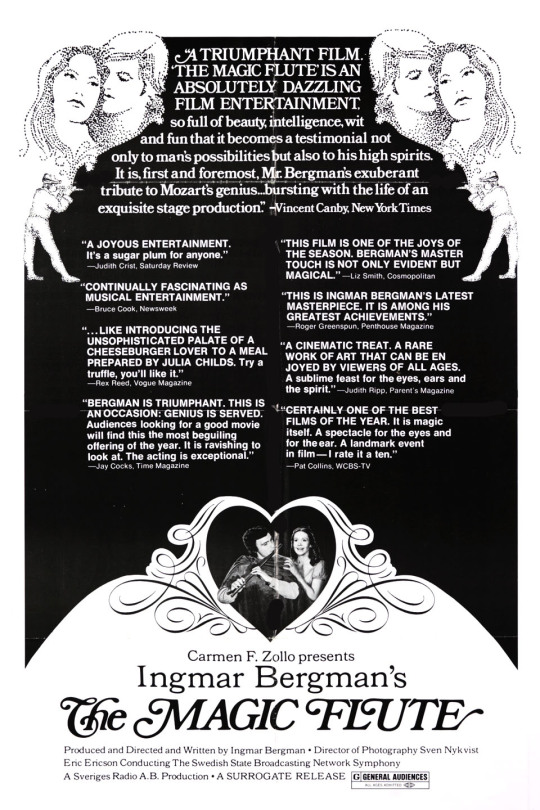
#the magic flute#josef köstlinger#irma urrila#håkan hagegård#elisabeth erikson#ulrik cold#birgit nordin#ragnar ulfung#erik saedén#kirsten vaupel#birgitta smiding#britt marie aruhn#erland von heijne#urban malmberg#ansgar krook#ingmar bergman#1975
1 note
·
View note
Text
youtube
glad to know people have been having the exact same arguments about opera for at least 250 years
#opera#opera tag#Ein Oper ist ein absurdes Drig#Capriccio#Strauss#Richard Strauss#meta#same old arguments#Kiri te Kanawa#Tatiana Troyanos#David Kuebler#Håkan Hagegård#Sir Simon Keenlyside#now I need to watch the full production because that cast? *chef’s kiss*
6 notes
·
View notes
Photo






“Papageno!” “Papagena!” “Papageno!” “Papagena!” “Papageno!”

#trollflöjten#the magic flute#die zauberflöte#mozart#ingmar bergman#håkan hagegård#Elisabeth Eriksson#let me dabble in other arts#my gifs
44 notes
·
View notes
Photo
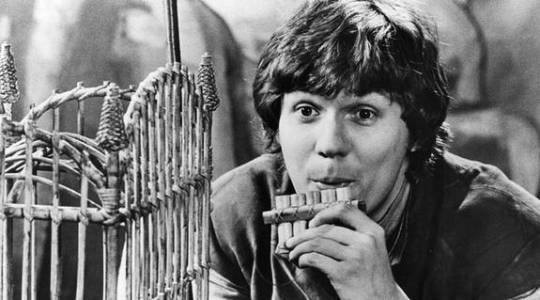
Wir eröffnen das kultivierte Musikprogramm im Beethovenjahr mit Mozarts allseits beliebten Singspiel Die Zauberflöte. Auf Schwedisch. Da dies einer der ersten Filme ist, die gesehen zu haben ich mich erinnere, und wahrscheinlich überhaupt die erste Oper, wundere ich mich bis heute, wenn die Zauberflöte nicht auf schwedisch gesungen wird, und keine Tafeln mit weisen Sinnsprüchen ins Bild kommen. Außerdem hatte ich jahrzehntelang eine außerordentlich naive Vorstellung vom Filmschaffen Ingmar Bergmans. Prinz Tamino und Pamina könnten es ganz reizend haben, geraten aber in die Fänge einer abstrusen, sinnes-, frauen- und mohrenfeindlichen Sekte, die behauptet, die Weisheit und Friedfertigkeit gepachtet zu haben, was sie allerdings nicht davon abhält, Andersdenkende drakonisch zu bestrafen. Dagegen sind die Bedürfnisse des beharrlich als Tunichtgut dargestellten reizenden Vogelfängers Papageno erfrischend nachvollziehbar.
#Trollflöjten#Håkan Hagegård#Josef Köstlinger#Irma Urrila#Birgit Nordin#Ulrik Cold#Elisabeth Erikson#Film gesehen#Ingmar Bergman#Wolfgang Amadeus Mozart#Die Zauberflöte#Oper
2 notes
·
View notes
Text
5.27.19
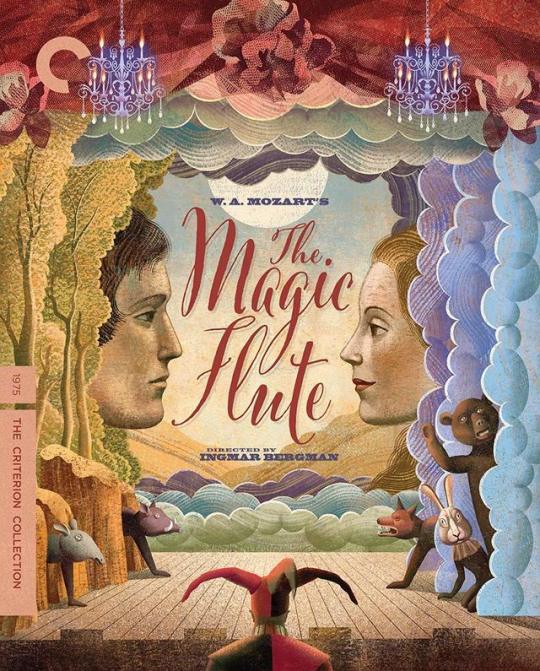
#film#letterboxd#watched#ingmar bergman#the magic flute#mozart#josef köstlinger#irma urrila#håkan hagegård#elisabeth erikson#britt-marie aruhn#kirsten vaupel#birgitta smiding#ulrik cold#birgit nordin#ragnar ulfung#erik sædén#gösta prüzelius#jerker arvidson#hans johansson#erland von heijne#ansgar krook#ingrid bergman#sonja lund#liv ullmann
2 notes
·
View notes
Photo
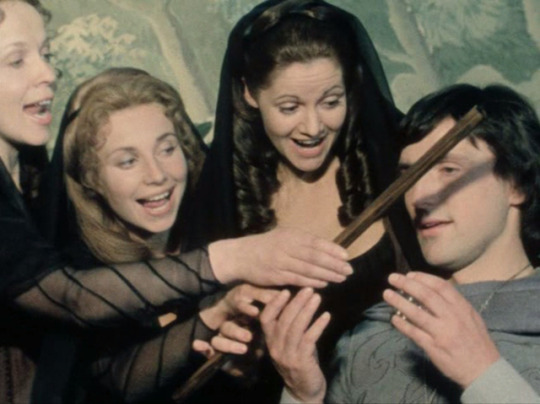
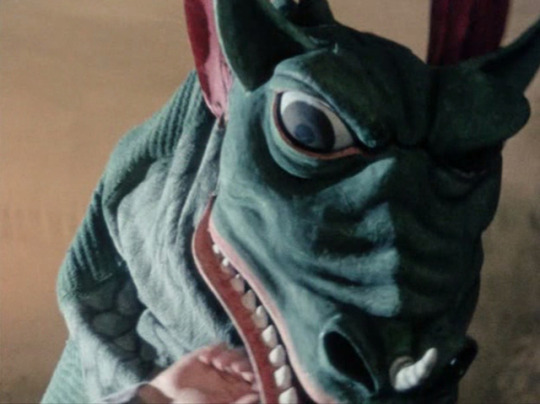
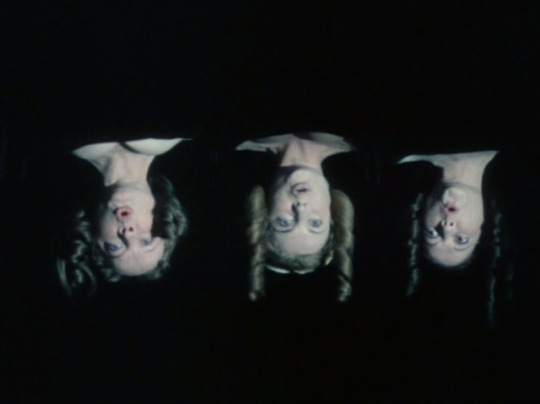
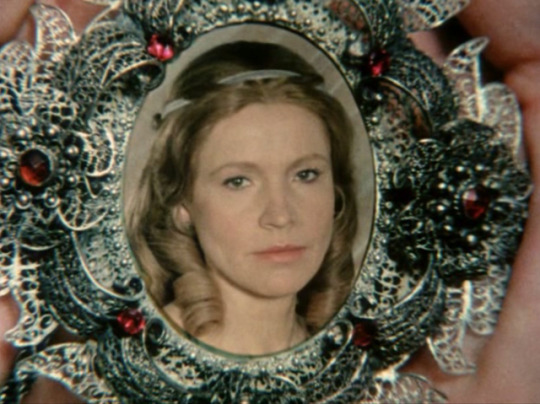
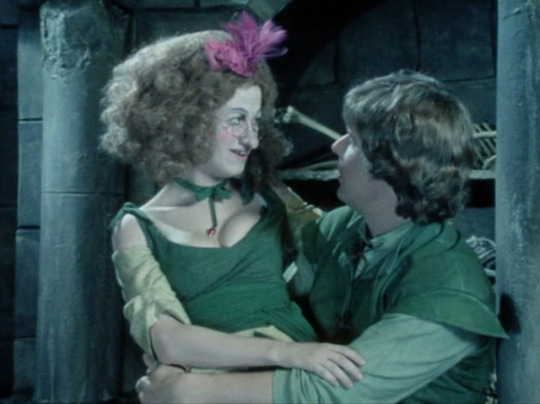
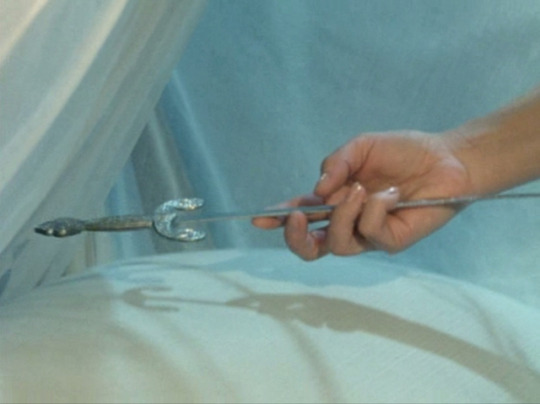
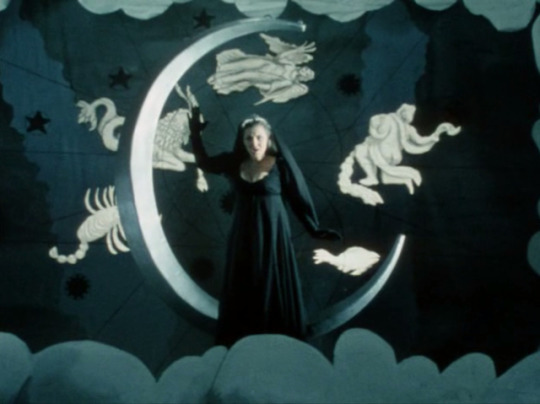
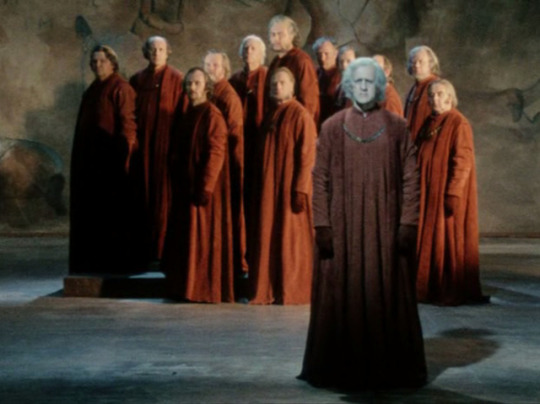
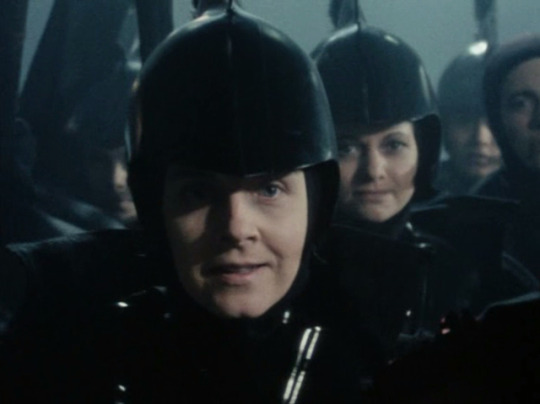
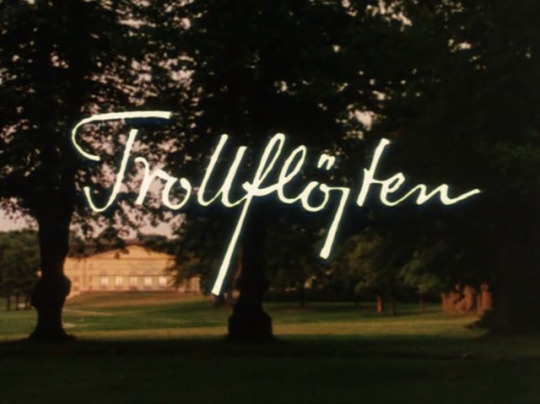
Trollflöjten (The Magic Flute) | Ingmar Bergman | 1975
#Ingmar Bergman#Bergman#Trollflöjten#The Magic Flute#Mozart#1975#Birgitta Smiding#Kirsten Vaupel#Britt-Marie Aruhn#Josef Köstlinger#Irma Urrila#Elisabeth Erikson#Håkan Hagegård#Birgit Nordin
319 notes
·
View notes
Text
Volume 8 to Volume 14
I’ve been bragging a lot about getting myself introduced to Swedish Pop-Rock lately, and honestly, it really is something to brag about. I mean they-are-so-good!!!
In 7 albums (Volume 1 to 7), I found songs there which can attract a Roxer like no other, since they were either Marie Fredriksson songs or Gyllene Tider songs. 6 out of 7 albums had it in them, and even if you didn’t know any song in the whole album, you’ll ultimately have one song which you can look forward to. Although my experience is that those songs (MF or GT songs) kind of lose their importance when there are other songs which sound good to the ear.
The first 7 albums gave a little overview to the artists and bands which are famous and make really amazing music. You get familiar to the names and ultimately when the next album starts, you know some names there already to look forward to.
It’s like a Swedish Pop Music Course.
In volume 8 to 14, there was barely any attraction for a Roxer. But it gets automatically attractive when you get to learn that this artist or this band has worked with Roxette or Per Gessle or Marie Fredriksson.
I even got to find a really boring song which I would have not given.... aaaa.... any “attention” if i didn’t know that Gessle wrote that song. Yes, things we do for love!
Let me share a little detail on the songs which were related to Roxette in these 7 volumes.
Vol. 8
- Ska VI Älska, Så Ska VI Älska Till Buddy Holly - Gyllene Tider
Vol. 9
- Det Är Över Nu - Gyllene Tider
Vol. 11
- Den Bästa Dagen - Marie Fredriksson
Vol. 14
- Segla På Ett Moln - Anne-Lie Ryde (This song was written by Per Gessle and a demo was also released in his “På väg” album in which it was sung by both Per and Marie, wayyyyy before Roxette.
That’s actually it.
Lessons learned from these 7 albums:
- There is this guy, Tomas Ledin who came out with a single with Marie, Frida and Håkan Hagegård called “Änglamark”. I have no idea who Håkan Hagegård is but I know that Håkan is Per’s middle name (haha, crazy Roxette fans). Turns out this single was released and many a fans have it on Vinyl and CD. Ain’t it awesome?
- “Segla På Ett Moln” is the boring song I was talking about earlier. I’ve never liked it before and I can’t seem to like it even now. Maybe there are others who like it. Stevo likes “Physical Fascination”, never forget that. Anyway, turns out, “Raj Montana Band” has also recorded it earlier. For reference, Raj Montana Band was Clarence Öfwerman and Pelle Alsing’s old band. Hmmm, nice little piece of information.
6 more volumes to listen and then that will be ending my first course to Swedish Pop-Rock from the 80s and 90s.
Looking forward to that.
Love and Peace
13/2/2017
#Roxette#Per Gessle#Marie Fredriksson#Gyllene Tider#Clarence Öfwerman#Pelle Alsing#Stevo Petkovic#Segla På Ett Moln#Håkan Hagegård#Tomas Ledin#Anni-Frid Lyngstad#Swedish#Raj Montana Band
1 note
·
View note
Text
Fancasts for "An Eternal Crown: The Opera"
I'm being silly now and imagining what it would be like if my gender-bent Magic Flute retelling, An Eternal Crown, were adapted as an opera itself. It could be a "jukebox opera," consisting partly of music from The Magic Flute transposed, and partly of other music – for example, some of Handel's florid bass arias to take the place of the Queen of the Night's arias for King Vorteyo.
Sarisa and Zeran's voices I imagine as essentially Pamina's and Tamino's, since they are those two in reverse: a lyric soprano and a light lyric tenor. Lorikeet I can't help but imagine as a lyric coloratura. Vorteyo would be a bass, Alesta and Imara both motherly mezzos, Kimzi one of those roles like Zerlina that can be sung either by a soprano or a light mezzo, and Robin a lyric baritone. The Three Warriors I picture as a "heroic" Italian-style spinto tenor, and a baritone and bass in more of a Mozartean vein.
These are some of the singers I think might have been good in the roles in different eras:
An Eternal Crown: The Opera, circa 1960-1965
Sarisa: Irmgard Seefried or Gundula Janowitz
Zeran: Fritz Wunderlich or Nicolai Gedda
Lorikeet: Lucia Popp
King Vorteyo: Cesare Siepi
Alesta: Maureen Forrester
Kimzi: Teresa Berganza or Graziella Sciutti
Robin: Hermann Prey or Theodor Uppman
Imara: Marga Höffgen
Three Warriors: Giuseppe di Stefano, Eberhard Wächter, Fernando Corena
An Eternal Crown: The Opera, circa 1980-1985
Sarisa: Ileana Cotrubas
Zeran: Francisco Araiza or Peter Schreier
Lorikeet: Kathleen Battle
King Vorteyo: James Morris
Alesta: Marilyn Horne
Kimzi: Teresa Stratas
Robin: Håkan Hagegård, or a young Alessandro Corbelli
Imara: Janet Baker
Three Warriors: José Carreras, Thomas Allen, Samuel Ramey
An Eternal Crown: The Opera, circa 2000-2005
Sarisa: Ana María Martínez or Dorothea Röschmann
Zeran: Charles Castronovo
Lorikeet: Diana Damrau
King Vorteyo: Samuel Ramey
Alesta: Denyce Graves
Kimzi: Cecilia Bartoli
Robin: Rolando Villazón (it could have been an early light baritone foray for him)
Imara: Stephanie Blythe
Three Warriors: José Cura, Simon Keenlyside, Ildebrando d’Arcangelo
I'll think of more in the future.
7 notes
·
View notes
Photo
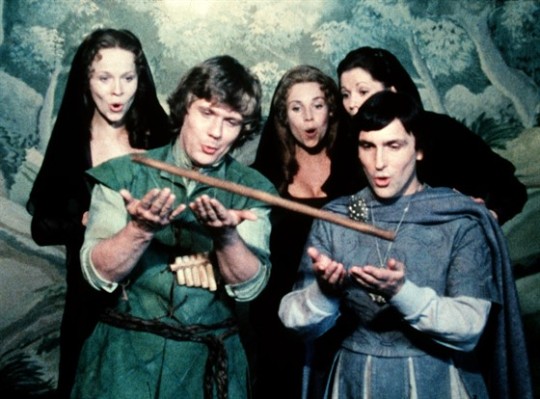
NOTE: Despite the fact The Magic Flute was originally released on Swedish television on January 1, 1975, it debuted as a theatrical film in the United States later that year in November. As per the rules I set out for this blog, Bergman’s The Magic Flute will be treated as a theatrical film.
The Magic Flute (1975, Sweden)
I imagine that when some people read that this film review concerns an adaptation of an opera, they will stop reading at the word, “opera”. As someone who was taught classical music from an early age, I get it. Opera seems inaccessible, and a several-minute aria just to get a plot point across can seem daunting (not just for the audience, but the performer too). But as with any artistic medium, there will always be points of entry for newcomers. Ingmar Bergman’s 1975 adaptation of Wolfgang Amadeus Mozart’s opera The Magic Flute is one of them. The Magic Flute is one of the more accessible and most performed operas in Western classical music, and it just so happened to be Ingmar Bergman’s favorite. Bergman saw the opera when he was twelve years old, leaving an immediate impression. Unable to afford the record, he attempted to recreate The Magic Flute with marionettes at home. By the mid-1970s and having cinematic and stage production experience in his oeuvre, Bergman dared to imagine filming his favorite opera.
There are numerous cinematic opera adaptations. But they are underseen and largely unavailable to North American viewers – I am not including filmed opera performances in this distinction (e.g. the Metropolitan Opera’s popular live feeds that are presented in movie theaters and public television). Invariably, Bergman’s The Magic Flute is mentioned on the rare occasions when opera films are discussed. Sometimes, due to contempt for opera or a lack of understanding about classical music, it is the only such opera film discussed, and usually never from a musical lens.
In this adaptation, Bergman attempts to meld the distinct artifices of cinema and opera together. The viewer is never transported to a fantastical world, as the film possesses no “fourth wall” to begin with. We see an audience – look closely and you will see Bergman and cinematographer Sven Nykvist in the audience – waiting in anticipation during the overture, and the action takes place on what appears to be a homely community opera house. On occasion, we will see the performers backstage preparing for their musical entrances. When their performance begins, they inhabit the world of the opera.
This peculiar dynamic Bergman creates is less believable on a more gargantuan stage. The stage’s production design and deliberately low-budget (but charming) costume design suggests we are experiencing a performance given by a small community opera company. La Scala this is not, nor is it the Met or Paris Opera. Bergman wished to shoot the film at the Drottningholm Palace Theatre in Stockholm, a small eighteenth-century theater that still uses mechanisms dating back to its inception. Unfortunately, that theater was deemed too fragile for film equipment. Nevertheless, Bergman and production designer Henny Noremark (who also served as co-costume designer along with Karin Erskine) concocted a workaround. On a soundstage at the Swedish Film Institute, the production design team painstakingly crafted a facsimile of the Drottningholm Palace Theatre’s interior. The Magic Flute appears to be an inexpensive production, but it is anything but. The stage is intimate, inviting, personable.
In brief, Mozart’s opera is set in Egypt and concerns a mother-daughter dispute rife with misunderstanding. The protagonist, Prince Tamino (Josef Köstlinger), is contacted by the Queen of the Night (Birgit Nordin). She asks him to free her daughter Pamina (Irma Urrila) from the clutches of a high priest named Sarastro (Ulrik Cold; doesn’t that sound like a villainous name?). After being shown a portrait of Pamina, Tamino falls instantly in love with her – that’s opera logic, you know. Tamino is joined in his adventures by Papageno (Håkan Hagegård), an overly talkative bird-catcher dressed like a bird. But Tamino will learn more about Sarastro’s priestly order and becomes interested in joining. The Magic Flute has been interpreted as heavily influenced by Masonic themes, and modern analyses clash as to whether its portrayal of the Queen of the Night is misogynistic (see: Sarastro’s belief that Pamina should not be subject to the Queen’s feminine manipulations) or proto-feminist.
Also featured are the conniving Monostatos (Ragnar Ulfung) and, in the second act, Papagena (Elisabeth Erikson). The Magic Flute benefits from an excellent recording by the Swedish Radio Symphony Orchestra under the direction of conductor Eric Ericson.
Opera films tend to adhere closely to the work composer and librettist. Bergman exercises some liberties with Mozart’s music and Emanuel Schikaneder’s libretto*. Instead of the original German, this film uses a Swedish-language libretto by the poet Alf Henrikson (this Swedish-language version debuted at the Royal Swedish Opera in 1968). No offense against the Swedish language, but this Swedish-language version of The Magic Flute makes the musical phrasing awkward. Mozart’s opera was composed with German in mind. German may not be a listenable as Italian in an operatic setting (it could be worse, it could be English – as in the otherwise excellent 1951′s The Tales of Hoffman, adapted from Jacques Offenbach’s opera of the same name), but this should have been Bergman’s first choice.
The decision to cast singers with sweeter voices rather than full, unamplified ones assumes that an audience cannot tolerate a soprano’s high notes. "Der Hölle Rache kocht in meinem Herzen" – commonly known as the Queen of the Night aria – demands full-bodied womanly rage to sing. The soprano should sing this forcefully, but not harshly. It feels like Bergman is asking Birgit Nordin to hold back her vocals during the aria (which also sounds rushed in the second half). Whether in an opera or an operatic adaptation for film, this is not an aria that should be sung with anything less than full power. Bergman should let Nordin sing this aria as it should be sung. To do so invites a starker contrast between those few minutes and the rest of the film – a show-stopper as Mozart intended it to be. Nevertheless, Bergman’s decision to prioritize acting over musicality – however it grates upon my senses – works for all the other roles. Nykvist’s cinematography pulls close to the actors’ faces, demanding more facial acting from the cast (who are all lip-syncing) than they might be used to. The cast succeeds in this challenge, approaching a type of acting they are unaccustomed to.
The setting of Bergman’s Magic Flute strips away much of the opera’s original Egyptian setting and settles for a vaguely European design. The Queen of the Night-Sarastro conflict becomes a parental dispute, as Bergman makes Sarastro Pamina’s father. A few trios in Act II have been eliminated. Also in Act II and to the film’s detriment, Bergman changes the order of appearance of two Papageno-centric scenes to the point where they no longer make any narrative sense.
Where Bergman’s The Magic Flute triumphs is its representation of the nature of live opera (and, by extension, live theater). When one experiences an opera or theater, everything onstage is an interpretation, a living fiction. The events onstage and the music transport one from reality, without ever truly leaving that reality. Moments in which Swedish text of the libretto appears in front of the actors (sometimes held by the actors themselves) precede the creation and widespread use of surtitles in opera houses today. By making somewhat indistinguishable the actors’ transition between the “real” and operatic worlds (during the intermission’s last moments, we see actors smoke a cigarette and two others playing chess), Bergman shows that the viewer is as much a part of the performance. We assign as much meaning to the unreality of an opera as the actors. The whimsical comedy of The Magic Flute – one filled with imperfect protagonists and subplots that never quite cohere – makes Bergman’s metatextual commentary more apparent and approachable.
The Magic Flute followed two heavy Bergman dramas in Cries and Whispers (1972) and Scenes from a Marriage (1973). Having watched twelve of his forty-five feature films, The Magic Flute is, by some distance, the liveliest Bergman film I have seen. I do not expect any others to be as light, as comedic as this – the key difference might be that Bergman is adapting material, rather than using an original screenplay of his. It is refreshing to see an Ingmar Bergman without a gripping existential crisis, mentally disturbed characters soliloquizing their plights.
In The Magic Flute, the relationship between our lived reality and theatrical artifice holds for every person that engages with the performing arts. Debuting in Vienna in 1791, The Magic Flute, Mozart’s final opera, was not composed for aristocratic patrons, but commoners. Almost two centuries later, the in-film audience of Bergman’s adaptation is comprised of various genders and races. That universality of the theatrical experience is reflected in their faces, interspersed on occasion alongside scene changes and still moments. The universality of Western classical music, in this case Mozart’s, is etched in their gazes. Nykvist’s camera keeps returning to one young girl in particular. She is always smiling, obviously enchanted by The Magic Flute. Perhaps she is feeling things akin to Bergman the first time he experienced The Magic Flute – unburdened by cynicism, more accepting of unreality.
My rating: 7.5/10
^ Based on my personal imdb rating. Half-points are always rounded down. My interpretation of that ratings system can be found in the “Ratings system” page on my blog (as of July 1, 2020, tumblr is not permitting certain posts with links to appear on tag pages, so I cannot provide the URL).
For more of my reviews tagged “My Movie Odyssey”, check out the tag of the same name on my blog.
*A librettist is the opera term for a lyricist. The Magic Flute is a Singspiel opera, which means it contains snippets of dialogue. Schikaneder wrote both the lyrics and dialogue.
#The Magic Flute#Trollflöjten#Mozart#Ingmar Bergman#Josef Köstlinger#Håkan Hagegård#Birgit Nordin#Irma Urrila#Ragnar Ulfung#Ulrik Cold#Britt Marie Aruhn#Kirsten Vaupel#Birgitta Smiding#Elisabeth Erikson#Emanuel Schikaneder#Alf Henrikson#Sven Nykvist#TCM#My Movie Odyssey
1 note
·
View note
Text
The Best of July 2020

Best Discovery: Blue Collar
Runners Up: Antiviral, Baby Doll, Bad Timing, Beloved, Celine and Julie Go Boating, Clockers, Four Adventures of Reinette and Mirabelle, Goyōkin, The Innocents, Jefferson in Paris, Ragtime, A Streetcar Named Desire
Best Rewatch: Strange Days
Runners Up: Being John Malkovich, The Discreet Charm of the Bourgeoisie, Gemini
Most Enjoyable Fluff: New Jack City
Runners Up: Freddy's Dead: The Final Nightmare, I'm Not Rappaport, Not for Publication, The Seven Year Itch, The Winning Season,
Best Male Performance: Richard Pryor in Blue Collar
Runners Up: Kevin Bacon in The Woodsman, Marlon Brando in A Streetcar Named Desire, Geoff Edholm and David Schachter in Buddies, Ralph Fiennes in Strange Days, Laurence Fishburne in Deep Cover, Caleb Landry Jones in Antiviral, Karl Malden in Baby Doll, John Malkovich in Being John Malkovich, Nick Nolte in Jefferson in Paris, Harvey Keitel in Blue Collar
Best Female Performance: Tilda Swinton in Julia
Runners Up: Carroll Baker in Baby Doll, Jessica Forde and Joëlle Miquel in Four Adventures of Reinette and Mirabelle, Vivien Leigh in A Streetcar Named Desire, Theresa Russell in Bad Timing
Best Supporting Performance or Cameo: Thandie Newton in Beloved
Runners Up: Stéphane Audran in The Discreet Charm of the Bourgeoisie, Adolph Caesar in A Soldier's Story, Yaphet Kotto in Blue Collar, Thandie Newton in Jefferson in Paris, Mary Kay Place in Being John Malkovich, Eli Wallach in Baby Doll
Most Enjoyable Ham: Marilyn Monroe in The Seven Year Itch
Runners Up: Ruriko Asaoka in Goyōkin, Ice-T in New Jack City, Kenneth Branagh in Othello, Katharine Hepburn and Peter O'Toole in The Lion in Winter, Laurence Luckinbill in Not for Publication, Marth Plimpton in I'm Not Rappaport, Isabella Rossellini and Vanessa Williams in The Odyssey
Best Mise-en-scène: Gemini
Runners Up: Antiviral, Baby Doll, Being John Malkovich, Beloved, The Discreet Charm of the Bourgeoisie, Four Adventures of Reinette and Mirabelle, Goyōkin, The Innocents, Jefferson in Paris, The Magic Flute, Shura
Best Locations: Goyōkin
Runners Up: Celine and Julie Go Boating, The Innocents
Best Score: Gemini (Chu Ishikawa)
Runners Up: Baby Doll (Kenyon Hopkins), Beloved (Rachel Portman), Goyōkin (Masaru Satō), The Innocents (Georges Auric), Ragtime (Randy Newman)
Best Hunk: Brendan Gleeson in Braveheart
Runners Up: Christopher Abbott and Joel Edgerton in It Comes at Night, Eddie Albert in Roman Holiday, Marlon Brando in A Streetcar Named Desire, Kevin Dunn in 1492: Conquest of Paradise, Aaron Eckhart in Rabbit Hole, Mel Gibson in Braveheart, Håkan Hagegård in The Magic Flute, Nate Harman in Bless Their Little Hearts, Yaphet Kotto in Blue Collar, Laurence Luckinbill in Not for Publication, Karl Malden in Baby Doll, Don Murray in Bus Stop, 'Stache-Fireman in Ragtime
Assorted Pleasures:
- Opulent baroque opera sets in Farinelli
- Dreamy nighttime gardenscapes, gleaming wetness in Eaux d'artifice
- Period detail and general sense of historical verisimilitude in Beloved, Jefferson in Paris and Ragtime
1 note
·
View note
Text
Emanuel Ax - Schubert Schwanengesang, D. 957 (1985-2018) [24bit Hi-Res]
Format: FLAC (tracks) Quality: Hi-Res 24bit stereo Source: Digital download Artist: Emanuel Ax, Håkan Hagegård Title: Schubert: Schwanengesang, D. 957 Genre: Classical Release Date: 1985 Scans: not included

https://losslessbestmusic.com/36250-emanuel-ax-schubert-schwanengesang-d-957-1985-2018-24bit-hi-res.html
0 notes
Photo

Trollflöjten (The Magic Flute) | Ingmar Bergman | 1975
Britt-Marie Aruhn, Kirsten Vaupel, Håkan Hagegård, Birgitta Smiding
#Britt-Marie Aruhn#Kirsten Vaupel#Håkan Hagegård#Birgitta Smiding#Ingmar Bergman#Bergman#Trollflöjten#The Magic Flute#Mozart#1975#BF2017
22 notes
·
View notes